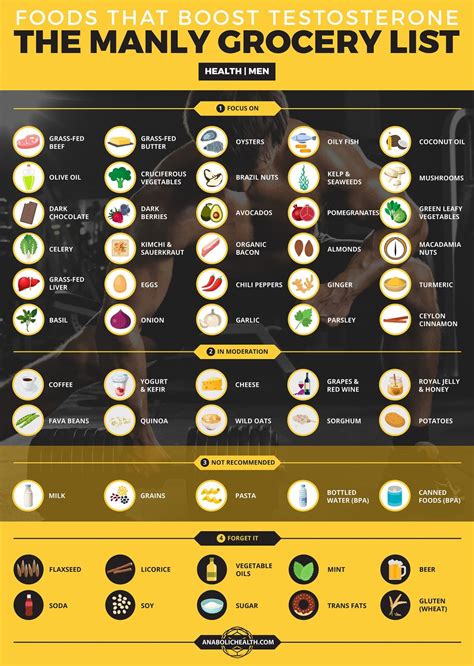How to naturally boost testosterone & energy for sustained peak performance?

Understanding Testosterone and Energy’s Role
Testosterone, often associated with male virility, plays a crucial role far beyond sex drive. It’s a key hormone influencing energy levels, mood, muscle mass, bone density, and cognitive function in both men and, to a lesser extent, women. Similarly, sustained energy isn’t just about avoiding an afternoon slump; it’s about having the mental and physical vitality to perform at your best, consistently. A decline in testosterone or chronic low energy can impact everything from your professional output to your personal well-being. The good news is that many natural, lifestyle-based approaches can significantly boost both.
Nutritional Pillars for Hormone and Energy Balance
Your diet is the cornerstone of hormone production and energy metabolism. Focusing on nutrient-dense, whole foods can provide the building blocks your body needs.
Healthy Fats: Cholesterol, a precursor to testosterone, is derived from dietary fats. Incorporate healthy fats from sources like avocados, nuts, seeds, olive oil, and fatty fish (salmon, mackerel) rich in Omega-3s. These fats also support brain health and cellular energy production.
Protein Intake: Adequate protein is essential for muscle repair and growth, which in turn supports a healthy metabolism and can indirectly influence hormone levels. Aim for lean protein sources such as chicken, turkey, eggs, lean beef, legumes, and plant-based proteins.
Micronutrients: Vitamins and minerals like Zinc, Vitamin D, and Magnesium are critical for testosterone synthesis and energy pathways. Oysters, red meat, and pumpkin seeds are rich in zinc. Sunlight exposure, fortified foods, and fatty fish provide Vitamin D. Leafy greens, nuts, seeds, and whole grains are excellent sources of magnesium.

Strategic Exercise for Hormonal Health
Physical activity, especially certain types, is a powerful natural testosterone booster and energy enhancer. Exercise improves insulin sensitivity, reduces body fat (which can convert testosterone into estrogen), and directly stimulates hormone production.
Strength Training: Compound movements (squats, deadlifts, bench presses) that engage multiple muscle groups are highly effective. Aim for 3-4 sessions per week with adequate rest for recovery and muscle growth.
High-Intensity Interval Training (HIIT): Short bursts of intense exercise followed by brief recovery periods can significantly improve cardiovascular health, boost metabolism, and contribute to hormonal balance. HIIT can be done with various activities like sprinting, cycling, or bodyweight exercises.
Avoid Overtraining: While exercise is beneficial, excessive or chronic endurance training without proper recovery can actually suppress testosterone and increase cortisol (stress hormone) levels. Listen to your body and prioritize recovery.

The Power of Quality Sleep
Sleep is when your body repairs, regenerates, and produces many vital hormones, including testosterone. Chronic sleep deprivation is a major culprit behind low energy and hormonal imbalances.
Aim for 7-9 Hours: Most adults need 7-9 hours of quality sleep per night. Consistency is key, so try to go to bed and wake up around the same time each day, even on weekends.
Optimize Your Sleep Environment: Ensure your bedroom is dark, quiet, and cool. Avoid screens (phones, tablets, computers) for at least an hour before bedtime, as blue light can disrupt melatonin production.

Stress Management and Mental Well-being
Chronic stress elevates cortisol levels, a hormone that can directly suppress testosterone production and deplete energy reserves. Managing stress is paramount for overall health and hormonal balance.
Mindfulness and Meditation: Practices like mindfulness meditation, deep breathing exercises, or yoga can significantly reduce stress and improve mental clarity and energy.
Hobbies and Relaxation: Dedicate time to activities you enjoy that help you unwind, whether it’s reading, spending time in nature, listening to music, or connecting with loved ones.

Lifestyle Habits for Sustained Performance
Beyond the core pillars, several other lifestyle factors can contribute to optimal testosterone and energy levels.
- Limit Alcohol and Caffeine: Excessive consumption of both can disrupt sleep and hormone balance. Moderate intake is generally fine, but be mindful of their effects on your body.
- Stay Hydrated: Water is essential for every bodily function, including energy production and nutrient transport.
- Maintain a Healthy Weight: Excess body fat, particularly around the abdomen, can lead to lower testosterone levels.
- Consider Adaptogens (with caution): Herbs like Ashwagandha or Rhodiola Rosea are known to help the body adapt to stress and can indirectly support hormone balance. Always consult a healthcare professional before adding supplements to your routine.
Conclusion
Boosting testosterone and energy naturally for sustained peak performance is not about quick fixes but a holistic approach to health. By consistently implementing strategies around nutrition, exercise, sleep, and stress management, you can create a powerful synergy that optimizes your hormonal health, elevates your energy, and empowers you to perform at your highest potential, both physically and mentally. Embrace these changes as an investment in your long-term vitality and well-being.









